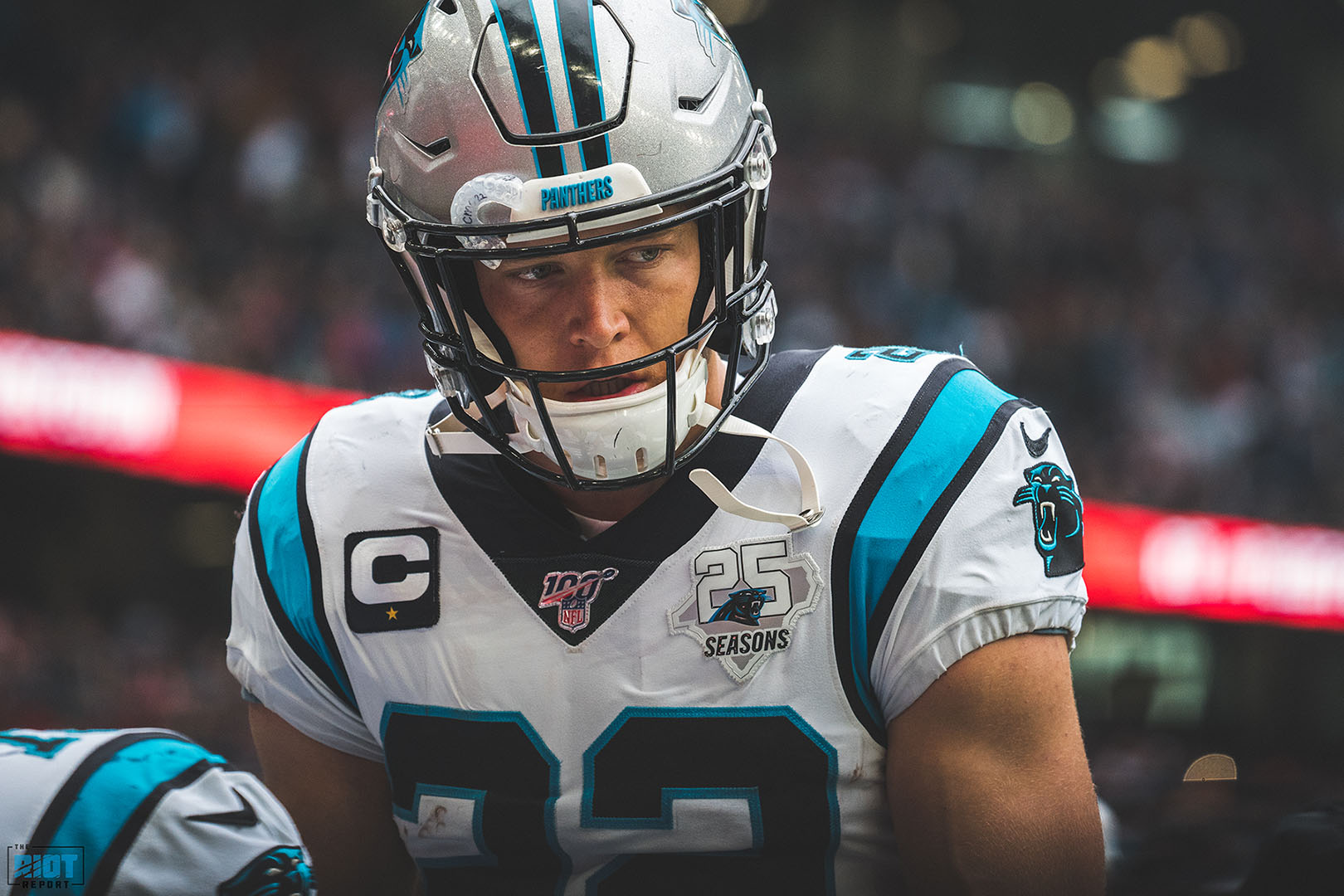Tilt the defense.
You’ve heard the phrase a million times before, whether it’s on a Sunday broadcast talking about a particularly talented wide receiver or just about any preview of almost any game in any sport- the phrase applies not only to football, but the NBA, where teams can employ a box-and-one or consistently double-team a superstar; it applies to baseball, where you can shift your defense based on the tendencies of a slugger, moving your defenders around to the areas of the field where the ball is most likely to go.
And in the NFL, it’s a constantly evolving technique, changing your concepts and schemes to not only fit your opponent, but who’s got the hot hand on the opposing offense, who you think the game will ultimately depend on and whether or not you have the personnel to stop it – sometimes it’s sending a corner like James Bradberry to take an elite wide receiver like DeAndre Hopkins, Mike Evans or Julio Jones out of the game. Sometimes it’s shading a tight end to chip an elite pass rusher.
And sometimes it’s something that occupies your entire gameplan. That’s what Christian McCaffrey has become – someone that puts a strain on your entire defense.
“We do have ways of tilting our coverage concepts or our defense [towards] a guy like Christian – you’d have to,” said defensive coordinator Eric Washington, who luckily doesn’t have to gameplan for the Panthers running back, who ranks second in the league with 103 rushing yards per game and enters Week 8 with 923 yards from scrimmage – the ninth most in NFL history through the first six games of a season.
When you tilt your defense towards McCaffrey, it affects every other man on the defense – sending two or three players to account for a running back leaves a lot of one-on-one coverage on the outside and doesn’t leave a lot of blitzers to send at the quarterback.
“We definitely have tools within our package to try and address a player of the Christian McCaffrey caliber and sometimes you have to employ those schemes and tactics and then, away from that, you have to count on that particular player winning. He has to win one-on-one with very little help. Those are the kind of things that you try and do to try and limit the impact that a player like that can have.”
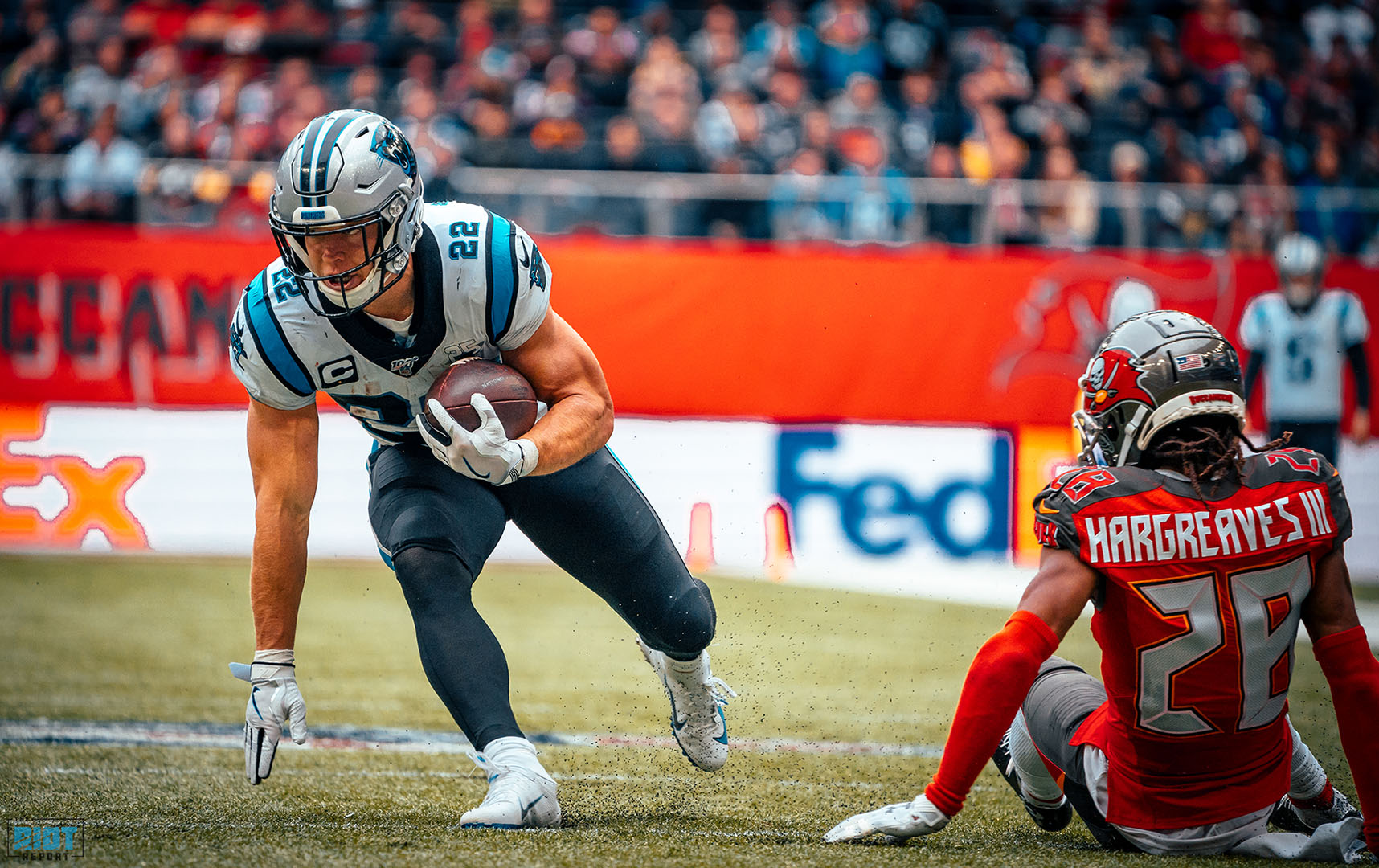
He Does Everything
McCaffrey has gone from simply a piece of the Panthers offense to the focal point, on the field for more snaps than any running back in the league and re-writing the record book as he goes – since the start of the 2018 season, McCaffrey has recorded 142 receptions, most by any running back in that time period by a wide margin – the 23-year old set the single season reception for a running back with 107 last year and was the first player in NFL history with 50 rushing and 50 receiving yards in five consecutive weeks.
This season, he joined Hall of Famer Jim Brown as the only players in NFL history to record 175+ yards from scrimmage and a touchdown in four of their team’s first five games in a season.
He’s a lot different than the player that made his NFL debut game at Levi’s Stadium in Santa Clara. In his rookie season, splitting time with Jonathan Stewart, McCaffrey had 117 carries – he has 127 already this season as he has become the focal point of the Panthers’ offense.
“I remember him vividly,” said 49ers defensive coordinator Robert Saleh this week about McCaffrey. “In [2017], I felt like he was a scatback, change-of-pace – we had a plan for him. We felt like he’d get his touches but didn’t think he’d hurt us. [Now], he is a more complete back, a very powerful runner where he can break tackles – he’s the full package. He’s obviously had a heck of a meal plan and a heck of a weightlifting program, because he is a very, very complete back.”
“There’s no weakness in his football game.”
Norv Turner had no doubt that McCaffrey would be able to handle a full load; he thought it when he watched him obliterate the NCAA record for all-purpose yards in a season with 3,853 yards – more than 600 more than Barry Sanders in 1988 – and it was confirmed when he arrived in Carolina to take over the reins as offensive coordinator ahead of the 2018 season.
Turner, along with the rest of the Panthers coaching staff, didn’t buy into the false narrative that McCaffrey couldn’t run between the tackles – and that was confirmed throughout his rookie season and then again in training camp as the coaches continually ran him between the tackles – the running back continued shoveling dirt on the sentiment when he broke off a 71-yard run on an off-tackle power run on the second play of the second preseason game against Miami.
“You have a feeling about a guy and then you come in here and see him and he does everything,” said Turner, echoing Saleh’s statements. “He’s got a great sense of when to make the cut, he reads the blocks extremely well.”
“I really think he’s the most complete back in the NFL right now. He runs, he catches, he blocks, he’s a great pass protector, he does everything we ask him to do.”
McCaffrey had the longest touchdown run in Panthers franchise history this season with a 76-yard burst at Arizona and then broke his own record two weeks later with an 84-yarder against Jacksonville – both runs came between the tackles.
Isn’t There Someone Else You Could Cover?
It’s an odd feeling when the defense is tilted at you – one day, you’re out there doing your thing and the next you notice an extra defender keeping an eye on you. Or a safety waiting over the top. Or an extra offensive lineman coming to double-team you on every snap.
Or an elite corner following you around the field.
“I think the moment where I was like, ‘Alright, I’m not just running around anymore,’ was I was in Chicago at the time,” said Greg Olsen about the first time he noticed schemes changing around him. “Charles Woodson was on the Packers and they played a lot of two-man type stuff where they would match guys – alright, you’ve got him, you’ve got him, you’ve got him. Dom Capers-type defense. We’d play them twice a year and for those couple of years, I’d have Charles Woodson on me the whole game.”
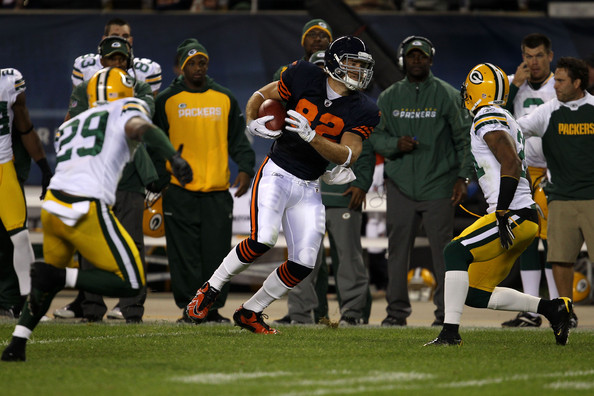
Greg Olsen faces off against the Packers in 2010. Photo Credit: Jonathan Daniel/Getty Images North America
“Here I am, in my second or third year saying, “Why are they putting this guy on me? Isn’t there someone else he could cover? Each team has their different feel, but for whatever reason, that really stuck out to me – obviously, he’s a Hall of Fame type player – so I knew going into those games that [I’m] not going to be able to just run around and disappear, these guys are going to account for you, you’d better earn it.”
In his two matchups with Green Bay during his third season, the tight end had three catches for 22 yards on 11 targets. The next season, Olsen caught 10-of-12 targets for 93 yards and a score against the Packers.
“When no one knows who you are, you can catch them by surprise. When they know you’re coming and now you’ve got to win, that’s a whole ‘nother world.”
For Gerald McCoy, he didn’t really notice the extra attention until it was already there – as a top-three pick, you’ll always draw extra bodies on the defensive line – but after his third season where he made the Pro Bowl with five sacks and 15 QB hits, he felt as if there was always an extra body between him and the quarterback, something that would remain true all the way up to and including this week against San Francisco – “since my fourth year in the league, it’s been like, ‘Yeah, stop this guy.'”
“You make flashes on tape and you do it for two or three weeks, people are like ‘I don’t know what it’s going to be like moving forward but we need to keep an eye on this guy,'” the six-time Pro Bowler said about drawing attention in the NFL. “If you do it for a whole season, then alright – he’s one of those guys, so let’s make sure to keep an eye on him.”
From Breakout To Broken
Many players draw the ire of the defense, but being able to produce even when the defense knows you’re coming is what separates the great players from the elite ones, Pro Bowlers from All-Pros, All-Pros from Hall of Famers.
But how to quantify what it means to be elite, what it means to not just break out but to stay broken, that’s not easy to put into words:
“You could write a book on that,” said Olsen. “I just think it’s every day. Everybody sees success on Sundays – OK, just keep doing that. They have no idea what goes in between Monday and Saturday to allow guys to perform at a high level year after year after year. Sometimes, it’s exhausting, it’s tiresome, it feels like it never ends. But certain guys just have that drive, certain guys have that sacrifice they’re willing to make to have that success on Sunday.”
“They realize that there’s so much that goes into that success – some guys don’t get it. They’re good enough when they’re young, they’re talented enough to get by – but the league catches up to you.”
“If you’re not putting in that work on the front end, it catches up to you fast.”
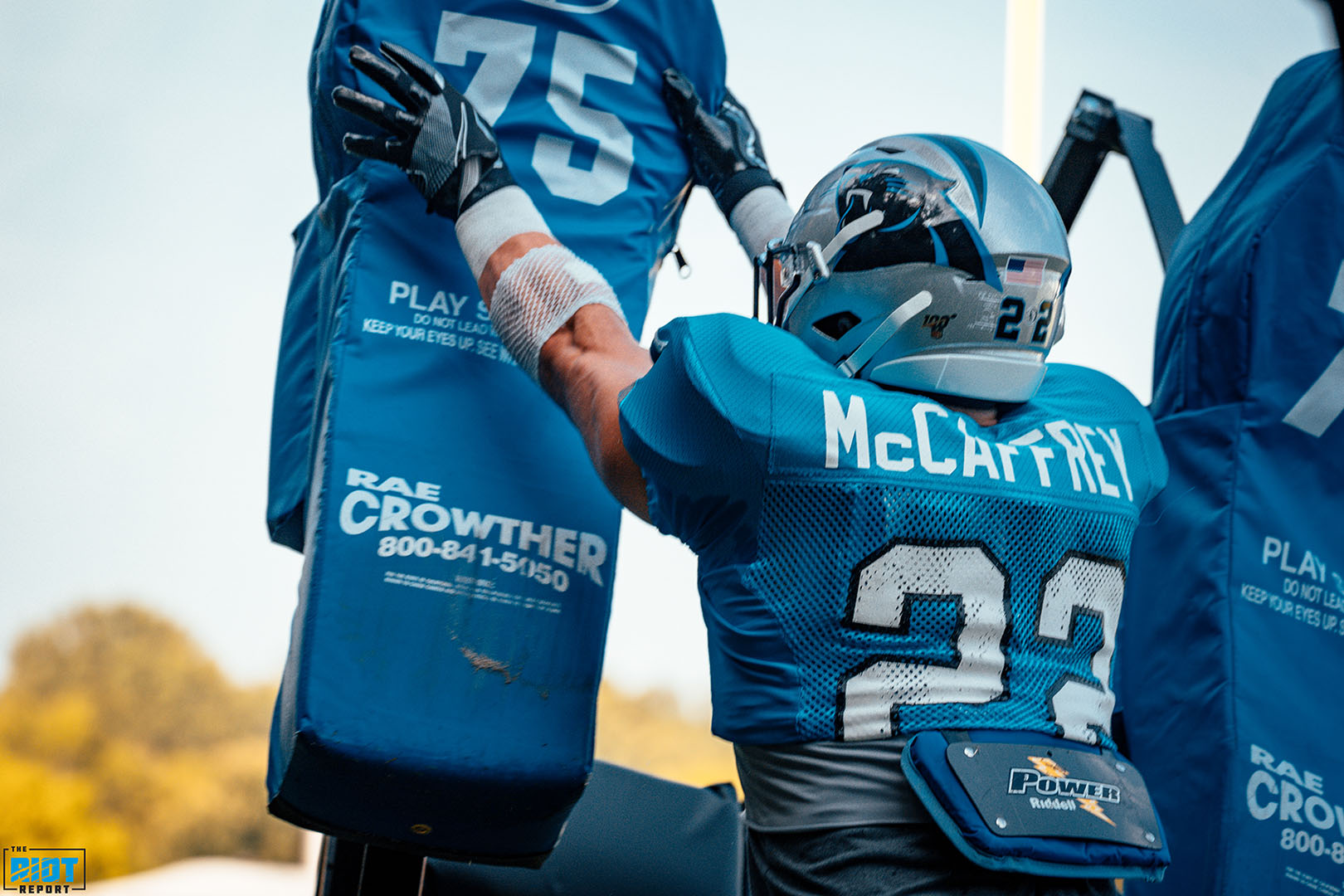
Everyone in the NFL was the best player in their high school, the best player in the county – most were the best players in the state and many were the best players on their college team.
Some were even the best players on their NFL teams.
“In this league, sometimes it’s hard to make those jumps, because everybody’s a professional and everybody’s good at what they do,” said Jarius Wright, who was a rookie on the Minnesota Vikings when Adrian Peterson rushed for over 2,000 yards and won the MVP. “So it’s more than just athletic ability to make those jumps now. It’s work ethic. It’s off the field and on the field – it’s not just physically, it’s not just mentally. Everything plays into that.”
Wright says McCaffrey has already made the jump to that elite level.
“He’s definitely made the jump already, for sure. I’ve been in the league a long time so I can kind of see it more than others, or if they even have the potential to make those jumps.”
“I think it’s a combination of a lot of things,” said McCaffrey about how to become a breakout player. “There’s an offseason and in-season, but the work never stops. You look at all of the great players across the league and there’s a sense of urgency even when you’re not playing games – that’s important from a team perspective and also from an individual perspective.”
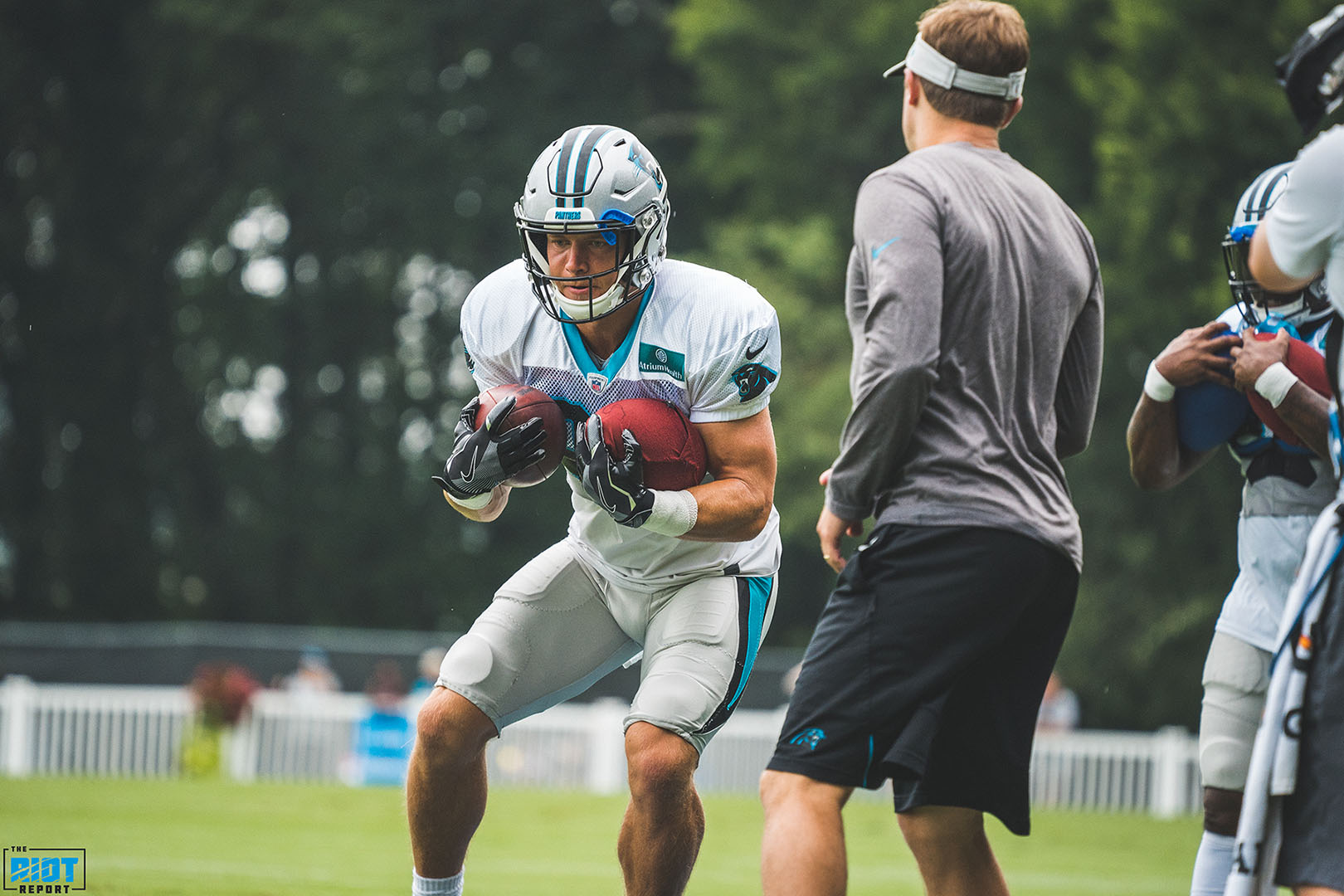
The work ethic of McCaffrey has long been extolled – whether it’s a chip on his shoulder or simply good genes from his father that played 13 years in the league as a wide receiver and mother who was a former Stanford soccer star – McCaffrey prides himself on the details that makes a good runner or receiver into a complete running back.
When the defense is primed to stop you, you don’t necessarily have to have the ball in your hands to make an impact.
“I wouldn’t say you have to push to that next level – I think that’s something that people misread,” said McCaffrey about having elite-level production on the field. “My job is to do what’s called on the play; there’s going to be games where I have a big statistical day and there’s going to be days when I don’t. In an era of fantasy football and being statistically focused, we often miss a lot of the art of football. The pass protection, the chipping, blocking downfield. Those are the things that set up the statistical runs and passes. That, to me, is what football is all about.”
“To be a breakout player, it’s not just about lighting up the scoreboard – that obviously helps, I’d be remiss if that wasn’t true – but I think there’s a lot more that goes into the game of football that people don’t focus on.”
Trying to game plan for McCaffrey – for whom lighting up the scoreboard has not been an issue through six games this season – is a problem for opponents. Just ask 49ers coach Kyle Shanahan, son of former Broncos coach Mike Shanahan – the current 49ers coach remembers Christian’s father Ed, who played for the elder Shanahan in Denver, showing off highlights of his son playing football in second grade.
“He looked the same then as he does now. Didn’t realize it would continue to go at that big of a freak level,” said Shanahan this week. “Just to watch Christian end up being the player that he is, is pretty cool.”
“It’s not like you can just get amped up and just go hit him hard. You better make sure everybody is in their gaps and in their exact right positions. He’s very smooth at how he runs. His feet are always under him, he can make violent cuts; he does run hard, but the thing that’s scary about him is he always finds the open gap – if you get a guy out of a gap, he will be on your middle third player faster than anyone in the league.”
“It’s definitely a hard feeling – like I’m watching Marshall Faulk coming to town.”
Sometimes tilting isn’t even enough.

